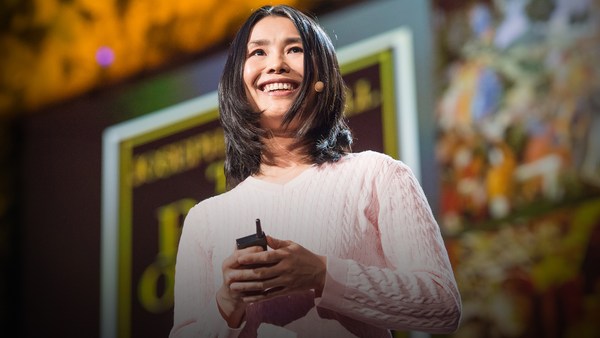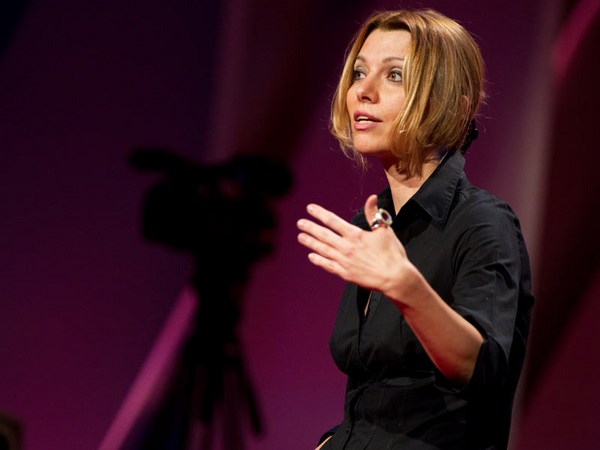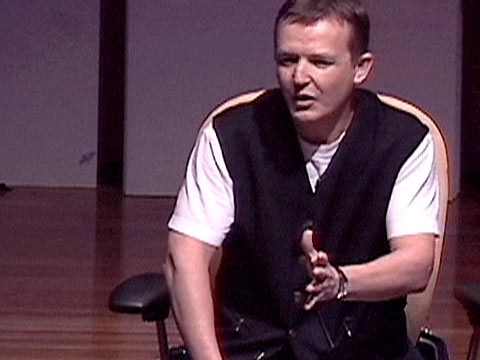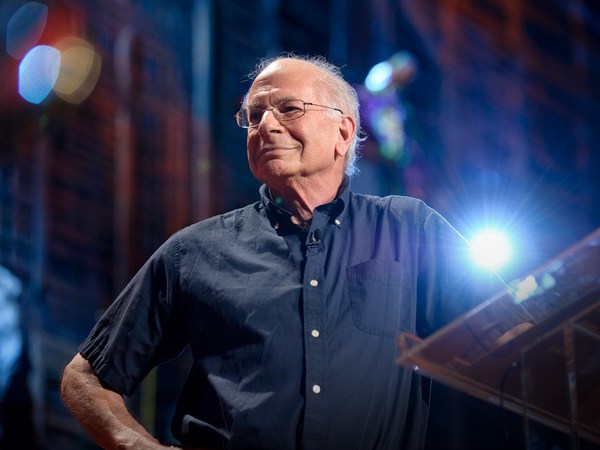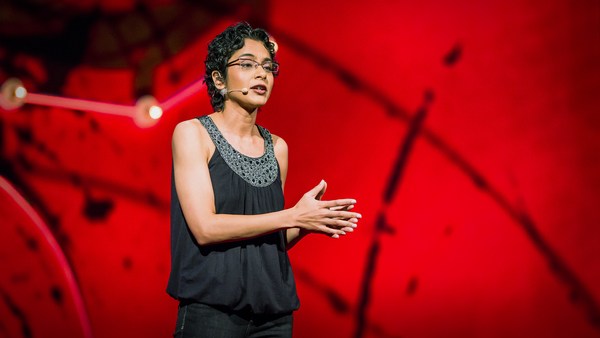I was recently at the mall where a couple of young guys approached me and asked me if I was that clueless girl? To which I paused and said, “I’m definitely clueless, and, yes, I’m that person who wrote that book ‘Clueless at 30’.” For the most part of my 20s and probably in my teens, I had this severe identity crisis. I didn’t know what I was supposed to do, what career I’m supposed to follow, and what’s my passion, I had no idea. But then most of us do what everyone else is doing, right? We just follow the blueprint for life, see what your friends are doing, or what is the coolest thing to do. You just follow the herd and you don’t really apply your mind. This is what I did. I belong to a South Indian Brahmin family where doing medicine or engineering was a thing, otherwise you’d be banished from the family. So I chose engineering because that was the easiest thing to do, which is what I did. And then after I graduated, I shifted multiple careers thinking, “Hey, this is not what I want to do. This is not my passion, this is not my ultimate thing.” And then I would go change my job into another sector. I did all kinds of things almost for a decade, all with this hope of trying to find out what is my passion, what is the thing I’m born to do? I did all kinds of things. I did my masters twice, four different time periods, changed like four industries, all with the hope of really trying to understand who I am. And none of that happened, okay? I probably still don't know a lot of questions. A lot of questions are not answered even today. But one thing that I chose to do was not to follow the romanticized idea of having one career or one passion or one direction, which I think a lot of us do very early in our lives. Because we think that having a sense of direction means that’s what you are going to be doing for the next 20, 30 years of our lives, and that’s not true. And I'll tell you in a bit. So I chose to have a diverse career and I had multiple avatars, maybe a day avatar, night avatar, weekend avatar. I did anything that excited me and I thought was going to be an adventurous journey. Now, the thing about having a diverse career means that you probably are moving industries or you’re moving to a different country. You need to acquire new skills. There are a lot of things that come. But along with it also comes the fears and the anxiousness of always exploring uncharted territory. So today I’m here to talk a bit about what new opportunities look like, the failures and the fears that come along with it, and what you're going to carry forward with you. How many of you here have read the book “Shawshank Prison?” It's a very old book, clearly. So in that book there is this character where he’s been told that he can ... He’s been in the prison for 50 years and they said, “Hey, you’ve served your time in the prison and we are offering you parole”. This character’s name is Brooks. So Brooks is so uncomfortable with the idea of getting out of the prison because prison has been his home for 50 years. And this means he has to reinvent himself outside and build a life for himself outside that prison. He chooses to attack his inmates so that he can just stay in the prison. I think a lot of us here sometimes when we are offered new opportunities, have these little shades of Brooks which show up, right? Saying, “Oh no, this is good. I don’t think I want to explore anything new”. But what we really miss is that we all change as people. You know, you make friends in a campus or maybe you met a stranger on an airplane or the route that you’re driving to work every day. There’s so many subtle things that happen around us, that influence the person that you actually become. It changes your perspective about life. It changes the perspective about your career. There are so many things that happen around you that are not in your control. To believe in the idea that you’re not going to change as a person is completely wrong because you will change as a person. You will evolve as a person. The moment you start evolving as a person, your idea about a career changes, right? Then you suddenly find yourself in a job that you can’t connect with anymore or that you don't like anymore. So it is very important that you don’t have this fear for discomfort, right? Because a lot of beautiful things come out when you are put in that position of discomfort. And the reason why we fear discomfort is because we as human beings seek stability. You want to know, “What will happen if I do this?” You don’t want to be a disaster, right? Hell no, you want to be successful but there is no way to know that. And the only way to know that is you jump right in. So embracing the idea of change as the only constant is very important when you start off in your career. I have changed multiple careers over time. I was an engineer, I was in marketing consulting and then moved on to a community builder. I was an entrepreneur, a VC, an author, right? In each and every avatar or industry I may have been successful, may not have been a failure completely, but, yeah, not so successful. But each job, each opportunity that I came across, I was definitely put at least one time in a situation of discomfort. I remember this one time that I had to speak on stage. It was a part of the job, where I had to do it regularly. Public speaking was a thing. I had not done it and I thought I was not cut out for it. I did what most people will do. I wrote my speech and practiced in front of the mirror. I rehearsed again and again, and I did all of that. I totally sucked that first time, right? And I probably sucked for a couple of years after that. But, of course, it slowly started getting better. Today, maybe because of that experience that happened a decade ago, I’m able to stand in front of you and talk. It’s not something that happened overnight. It took years and years of practice and years and years of being a disaster on stage and then hopefully being able to speak a little more confidently over time. So embracing change and evolving with whatever's thrown at you and putting yourself in a position of discomfort is what gives you a chance to evolve. And you’re going to see yourself as a work in progress and not as a complete product or a finished product is very important. And having a growth mindset, It doesn’t matter 20′s, 30′s, 40′s, or 50′s, but having a growth mindset and continuously evolving is very important. The next type of fear that I want to talk about is what I see really often in venture capital business. In venture capital we meet thousands of entrepreneurs every year. One thing that is really common amongst all entrepreneurs is that they face rejection every single day. Especially if you’re a first time entrepreneur, just out of college, you’re trying to build something. Your VC saying no, your customers saying no, you can’t hire your team. There’s rejection that you face of all kinds, every single day. Now, the thing about the fear of rejection is that a lot of times we start taking these things personally. We think something is wrong with us and we probably pull ourselves down even before someone else is pulling ourselves down. Or we’re gaslighting ourselves saying, “Maybe I’m not good enough that’s why I’m not getting this money.” A lot of times we’re not really thinking about the reasons behind this rejection itself. So it’s very important that we understand the other point of view and being a little more tactical. So one thing that I’ve seen great entrepreneurs do really well is when they are rejected, it is not the rejection that defines them. It is their reaction to that rejection that really defines their entrepreneurial journey over the next decade or so. And there are very few who are able to do that. And it’s important that all of us when we find a new opportunity, we understand that every opportunity will have ups and downs, of course. But we need to find that one thing that is worth failing for, that one thing that’s worth getting rejected for or probably smacked in the face and it’s okay. And for me that was writing. When I first came up with the idea of writing the book “Clueless at 30,” a lot of my friends were like, “Dude, why are you writing a book? Why are you wasting your time? You’re not Ratan Tata. Why will somebody want to read about this clueless girl in Bangalore? What is your claim to success?” And my book does not even provide any cheat sheets, basically, I mean, if any of you end up reading it. So why will somebody want to read this? Then I said, “No, this is something that I want to explore. I haven’t done this. There’s this creative side that I want to explore.” And that’s how I started writing. To much to my dismay - I wrote to my publisher - the first time it got rejected. And I wrote to a few other people. It got rejected. Then I was left with like hundreds of pages of written words and I didn't know what to do with it. So I thought, okay, hey, I’ve written these many pages, I decided to give it to my friends to give me feedback on it, right? And I also gave it to my TG, which is my target group, my target audience for the book to collect feedback. So once I had that feedback, I was able to tinker the language that would appeal to them and make it very interesting for them. It was not a boring book anymore and it was at least an attempt to make it fun, and in a way that is more relatable to a younger audience and so on. That took a lot of time and work. Much to my luck, I wrote back to the same publisher that I wrote to first, and they eventually gave me a book deal and the rest is history. But I think the idea of taking rejection in the right way and being very analytical about it really takes us a long way. The next fear is the mother of all fears, which is the fear of failure. And I think all of us experienced it in some form or fashion in our lives. So in my early 20s, when I was undergoing my quarter life crisis I suppose, I said, “Okay, I’m going to be an entrepreneur.” I went home and I told my mom. I had this idea of making packaged milkshake goods and I wanted to start selling them. My South Indian mom was like, “You are an engineer. Why would you quit your job to set up a juice shop?” I mean, that is a complete no, no. And I said, “No, I know there’s this huge market. I’m going to go do this.” And I quit my job. I quit my job and I started working on this. And a few months down the line, it didn’t turn out to be the way I wanted it to be. It was a complete disaster. I was now left without a job and a failed start-up, which probably didn’t even take off the way I wanted it to be. Now ... the thing about fear of failure is that it’s not about just you failing. You also carry the burden of letting your family down or letting your close friends around down. You know, you carry that burden with you and you get this fear of not even wanting to try anything new. And that’s what happened, I went and took a job back. I didn't want to experiment anything new. I was just happy with the cushy job. My love for experimentation and love for trying new things had completely gone because I thought, “Oh my God, what if I make another blunder?” I didn't want to do that for my career. And I didn't talk about my failure for the longest time, even with a close set of friends. Three years went by and there’s this one night a bunch of us caught up. Everybody was talking about general screwups in life and so on. And then I happened to share this story about how I tried to do this thing and it didn’t work out. Everybody gave it a patient hearing for like 30 seconds, we discussed it and moved on. And the next person shared his story of disaster, then we discussed it for like 30 seconds and moved on. What was really amazing about that night, I don’t think each of us spent more than 30 seconds talking about that failure itself and it took me two or three years to accept that because I thought people would judge me. I thought I would look small and incapable and an utter failure, because that’s how I was viewing myself. Even before other people judged me, I was judging myself and I thought I was a failure. What’s also interesting is that everybody is so busy licking their wounds that nobody cares about your wounds. I was thinking about all these things for two or three years and nobody even cared about it. So that’s one thing that I’ve learned. What matters is not the failures that you have but the successes that eventually come out. If you look at venture capital business, in most venture portfolios, 80% of them have failures. We all celebrate only the 20% wins, right? Or even if you look at the famous Thomas Alva Edison, nobody talks about his failed experiments. Everybody talks only about his wins. Ultimately, that’s all that matters. So all we can do is continue experimenting, trying new things, and hoping that one will take off, right? And not really bog down by the failures and stop experimenting with new things. And that whole thing was my biggest learning from that experience. Now ... fears and failures and all these experimentations and losses and sacrifices is what ultimately shapes us as people because it forms the basis of a strong person who will be able to make stronger decisions because it brings so much unique perspective and character in you than anything else. I don’t think there’s any person around who’s probably become successful without having failed a couple of times. There are failures which are a part of our journey. The problem is that sometimes we view failure as the opposite of success. We don't see it as a part of our successful journey, and it’s very important we shift this mindset. Now, I’m still clueless about a lot of things. I'm still open to new adventures and new opportunities. Some may work, some may not work, some may be an utter disaster, I don’t know. But unlike my 20-year-old self, I don’t associate new opportunities with anxiety, fear. But I try and associate that with hope and belief that the universe has a master plan where everything is going to come together and I will strike right through. Thank you. (Applause)
